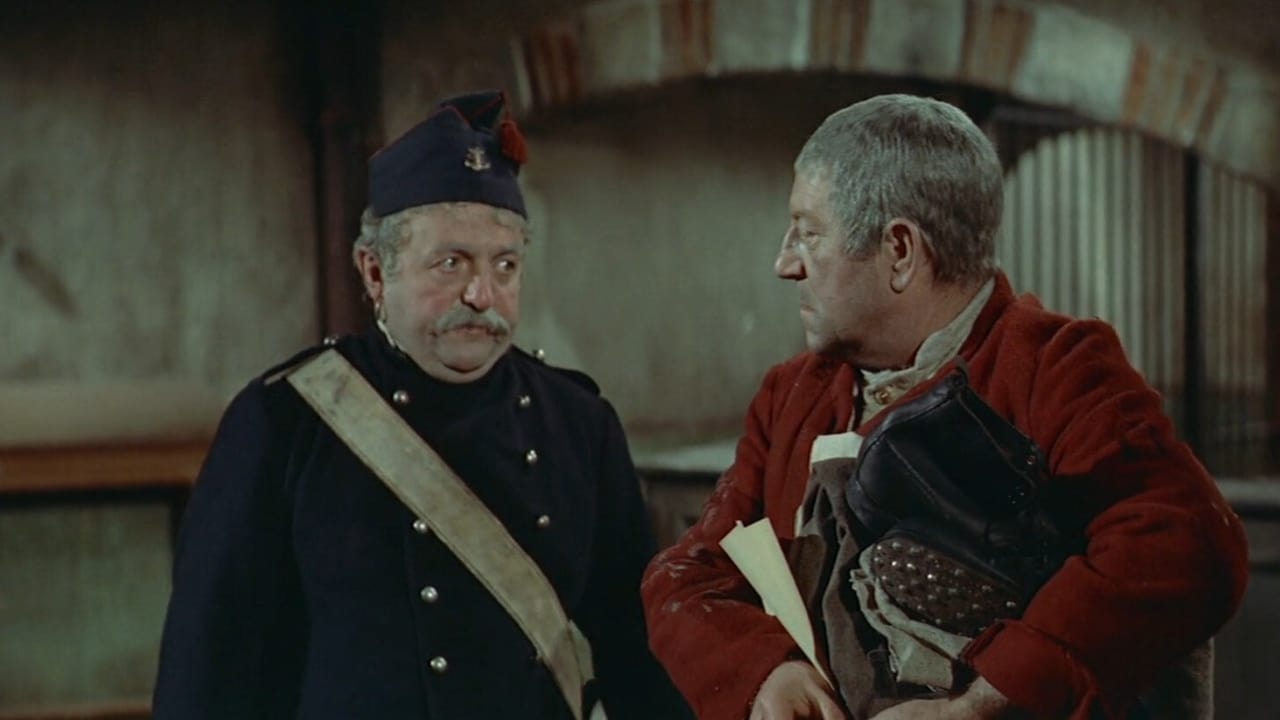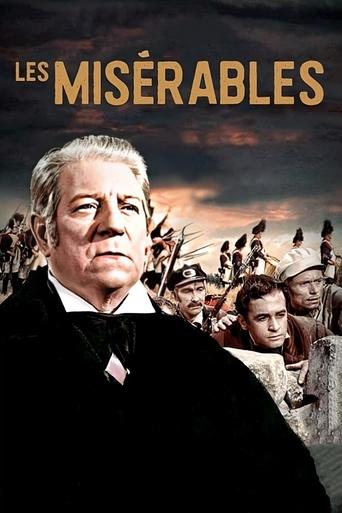BroadcastChic
Excellent, a Must See
Supelice
Dreadfully Boring
Doomtomylo
a film so unique, intoxicating and bizarre that it not only demands another viewing, but is also forgivable as a satirical comedy where the jokes eventually take the back seat.
Bob
This is one of the best movies I’ve seen in a very long time. You have to go and see this on the big screen.
Emil Bakkum
Recently I bought the film Les miserables on DVD, because in my youth it had made a deep impression. The French release is rather expensive, but fortunately there is also a cheap Chinese version, with subtitles that can be switched off. This requires that you understand French. Joke to enliven this review: acupuncture fees in China are so cheap it is called pin money. Perhaps the outstanding quality of the film is illustrated best by the fact, that even today I recognized many of the scenes. And believe me, I am old, I can remember when everything was fields. I start doing jigsaw puzzles again. The film excels in its plot, in the gifted actor Jean Gabin, in the scenery and in the music. The narrative is so characteristic of the nineteenth century, with a clear division between good and bad. It is true that Jean Valjean (Jean Gabin) has a criminal past, but actually this derailment is caused by a crooked society. And when Valjean is converted by a priest, he remains an angel for the rest of his life. What kind of fun does a priest have? Nun. In addition all love is pure. When the adopted daughter of Valjean meets a young man, it is love at first sight. In addition the political situation is fascinating. We see how street battles put aside the remnants of the royal rule. So there is plenty of romance, and this is of coarse what made Les miserables so appealing to the adolescent that I was. And I suppose that the film may still be attractive to people in developing countries like China. For, as Confusius said: war does not determine who is right, war determines who is left. On the other hand, the contemporary postmodern Westerner may take offense at the lack of nuance and psychological depth. Not withstanding this flaw, the film remains highly recommendable. Don't forget to leave comments. I love it.
TheLittleSongbird
To me, the best versions of Les Miserables- a literary classic, and "the great French novel" for a reason- are the ones from 1935, 1978 and especially 1934. Apart from some draggy pacing, staid directing and the very unexciting barricade scenes, this film was still very good and as an adaptation is better than the 1952, 2000 and especially 1998 adaptations. The film looks very detailed and beautiful if at times too clean, and the photography is very skillful and mostly fluid(if clumsy at times in the scenes with the barricade). The music is haunting and dynamic and occasionally playful, while the script is very literate and maintains the brusque nature of Hugo's prose and the story is faithful in spirit to the book with some parts expanded on like with Valjean and Javert- though things were changed to accommodate the age difference between the actors- and Valjean and the bishop, which none of the other adaptations or even the book for that matter did. The storytelling is still poignant and the message of the book is there and it resonates. Of the cast the standouts are Jean Gabin, Bernard Blier and Bourvil. But that is not to dispute Daniele Delorme as a touching Fantine and while Béatrice Altariba achieves some pathos if not being entirely successful at overcoming Cosette's blandness. Gabin is a noble and understated Valjean with a lot of charisma and emotion, his change from immorality and redemption is portrayed very convincingly. Blier's Javert is cold-blooded, obsessive, strong-principled but there is vulnerability and a conflicted side he brings to Javert as well, which stops him from becoming too much of a one-dimensional antagonist. Bourvi's Thernadier is very slimy and funny, one of the best in the role actually, he manages not to be too sadistic or buffoonish, for a comic-villain role that Thernadier is those are a danger and Bourvil doesn't fall into that trap. In conclusion, a very good film and adaptation but from personal perspective it's not a first choice. 7.5/10 Bethany Cox
esteban1747
This version of the famous novel of Victor Hugo I found very suitable in general, with good acting and a narration, which give a real idea of the book. As I said several times several films never coincide with their original written versions, but this time the director Jean-Paul Le Chanois made a good effort in having a material as much similar to the book. Jean Gabin, for me the best all-time French actor, plays a good role as Jean Valjean seconded efficiently by Bernard Blier as Javert and several other French and Italian actors/actresses. I am sure that not all should agree with the opinion given here by me, but it depends how you feel about Hugo wrote. Misery is shown not only materially but spiritually as a sign of decaying society.
RobertUnderwood
I have seen numerous film adaptations of Les Miserables. This 1957 French version (directed by Jean-Paul Le Chanois) is the best one I have ever seen. I watched the version that was produced by The Bridgestone Group in 1992 with English audio (ISBN# 1-56371-044-7). It aligns closely with the plot of the novel, and the cinematography is outstanding.

